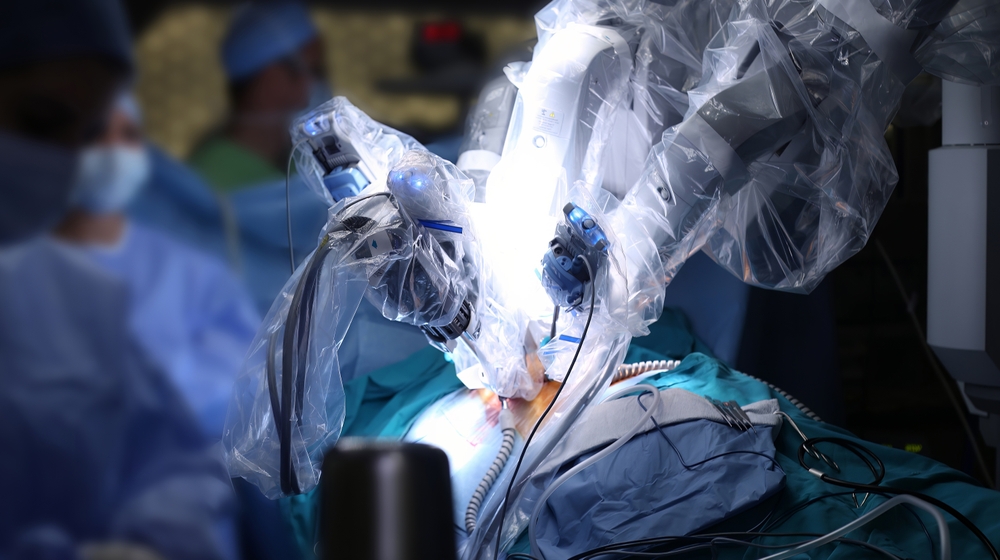
Urologic Oncology: Important facts you need to know about it
Urologic Oncology, or Uro-Oncology, is the urology branch that involves treatment and diagnosis of cancers in the kidney, urinary system, and genitalia.
Common cancers in urology treated by kidney specialists in Medanta Hospital, Lucknow include:
- Bladder Cancer
- Prostate Cancer
- Kidney Cancer
- Testis Cancer
Every year, around 4.04 million lives are lost due to prostate cancer, and the number is projected to increase by the year 2020.
Who is a Urologic Oncologist?
Urologic oncologist is a trained professional who provides surgical treatment for patients who suffer from urologic cancers. Uro-oncologist acts as a mediator who coordinates with medical oncologists, support services, and radiation oncologists to provide efficient treatment to patients.
The outcome of cancer treatment varies according to the stage of cancer. Kidney specialists at Medanta Lucknow have a proper treatment plan for each stage of urologic cancer. Management options for urologic cancer can vary from active surveillance to the multi-modal approach, which includes chemotherapy, radiation, and surgery.
The goal of the best urology treatment in Lucknow is to provide comprehensive and personalised care for patients suffering from urologic cancers by using optimum treatment options and state-of-the-art equipment.
Urologic Oncology Treatment Options
Today, minimally invasive surgery is the best option used by doctors for the treatment of urologic cancers. A good number of patients are the best candidates for the procedures stated below.
The team for urology treatment at Medanta Lucknow tends to be specialised in:
- Bladder Cancer: Radical cystectomy/Anterior exenteration (lap/open) with urinary diversion (ileal conduit, ileal neobladder, and ileal CCD)
- Prostate Cancer: Radical Prostatectomy (open or laparoscopic) with or without robotic assistance
- Kidney Cancer: Partial Nephrectomy Radical nephrectomy (laparoscopic and open), IVC thrombectomy
- Testicular Cancer: Radical Orchiectomy, Retroperitoneal Lymphadenectomy
Prostate Cancer
Prostate cancer now ranks among the most common forms of cancer found in men, just next to skin cancer. Not only that, but it is the second leading cause of cancer death in men, trailing only lung cancer. The best urology doctor in Lucknow ensures high chances of a cure depending upon the stage of cancer. Early diagnosis ensures a better cure. The best urology doctor in Lucknow diagnoses the presence of prostate cancer using a blood test method termed "PSA," along with digital examination of the rectal area. If detected early, complete removal of the prostate gland for a patient is the preferred treatment (called radical prostatectomy) can be done by open surgery as well as laparoscopic surgery.
Other treatment options provided by the best urology treatment in Lucknow include brachytherapy, radiation, and cryotherapy. Androgen deprivation therapy and chemotherapy are preferred initial treatments for advanced and wide-spread diseases.
Bladder Cancer
Every year, 12,500+ deaths have been attributed to the incidence of bladder cancer. Most patients usually complain of hematuria, or bloody urine. The best diagnosis protocol opted by centres for the best urology treatment in Lucknow is via cystoscopy. By taking a peek inside the patient’s bladder and acquiring the lesion biopsy, pathologists can easily determine the variant of bladder cancer invading the bladder’s muscular tissue.
Standard care protocol for bladder cancer is radical cystectomy and anterior exenteration with urinary diversion (orthotopic, neobladder, continental cutaneous diversion, ileal conduit). These procedures are mostly done by open surgery. Nevertheless, with expertise, it can be undertaken with laparoscopy, with or without robotic assistance.
Kidney Cancer
Renal cell carcinoma has been dubbed as one of the most commonly diagnosed forms of kidney cancer. Most of the tumours are located incidentally after results acquired from unrelated studies of kidney imaging. Symptoms of more advanced kidney tumours can closely mimic those of kidney stones (e.g. renal pain, hematuria). Therefore, in any such circumstance, one must not neglect to meet with a qualified urologist and get at least an ultrasound and urine test done.
For small tumors, excision of the tumour with a margin helps preserve the kidney (called partial nephrectomy). For larger tumors, tumors invading blood supply and locally advanced tumors, complete removal of kidney with surrounding covering is essential (called radical nephrectomy). Since renal cell carcinoma is resistant to radiation therapy and chemotherapy, for wide spread disease, surgical debulking of the disease is performed and certain medicines (named "targeted therapy") are prescribed. Most of the tumours can be removed with a minimally invasive procedure (laparoscopy).
The best benefits of minimally invasive surgery are:
- Minimal Loss of Blood
- Faster Recovery
- Similar outcomes
- Cosmetically superior






